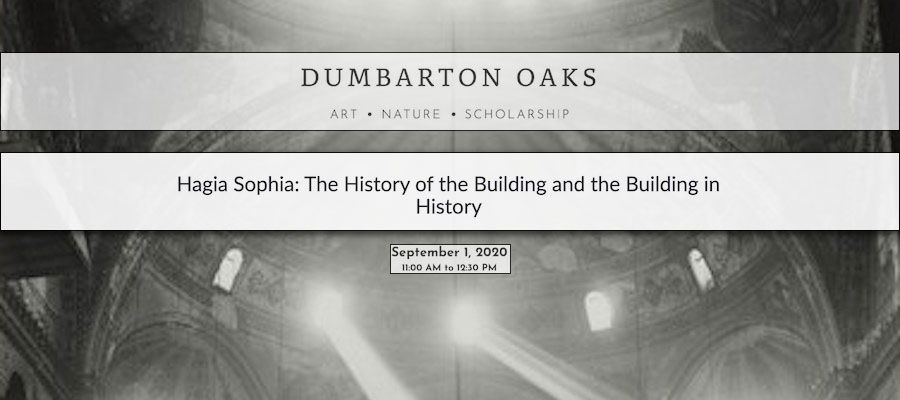Hagia Sophia: The History of the Building and the Building in History, Dumbarton Oaks Webinar, Zoom, September 1, 2020, 11:00–12:30
Built between 532 and 537, Hagia Sophia (Holy Wisdom, Ayasofya) represents a brilliant moment in Byzantine architecture and art. It was the principal church of the Byzantine Empire in its capital, Constantinople (later Istanbul), and a mosque after the Ottoman Empire conquered the city in 1453. The decision of the Turkish government in 1934 to establish Ayasofya as a museum was intended to make it a repository of human history—all human history, not a single history confined to one religion or people. Recently, this decision was annulled, turning the building again into a mosque.
With the passage of time, Hagia Sophia has become deeply embedded in competing narratives of national, regional, religious, and cultural significance. Selective readings of cultural heritage, however, can effectively erase historical memory and sever links with the past. As a monument on the world stage, it should be allowed to maintain multiple meanings, to resonate with multiple narratives and histories for diverse audiences. This exceptional building belongs to world cultural heritage.
Between 1931 and 1949, work was undertaken by the Byzantine Institute of America (founded by Thomas Whittemore in 1930) to reveal and preserve the mosaics of Hagia Sophia. Dumbarton Oaks, with its legacy of displaying, studying, and publishing all aspects of Byzantium, assumed the oversight of the Hagia Sophia project in 1953 and since then has been documenting every facet of this building and its artistic and historical record. Dumbarton Oaks houses an exceptionally important archive of data on the building in all its significant dimensions. We are in the process of making freely available online the extensive body of sources from, documentation of, and scholarship on Hagia Sophia collected and generated by the Byzantine Institute and Dumbarton Oaks.
This webinar brings together scholars who have actively promoted research on the Hagia Sophia and will cover historical facts, Dumbarton Oaks’ involvement, and the issues related to the recent reconversion of the monument.
Advance registration required.
